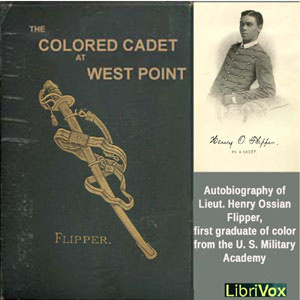Henry Ossian Flipper - Colored Cadet at West Point
Henry Ossian Flipper
100%
Speed
Summary
Henry Ossian Flipper--born into slavery in Thomasville, Georgia on March 21, 1856--did not learn to read and write until just before the end of the Civil War. Once the war had ended, Flipper attended several schools showing a great aptitude for knowledge. During his freshman year at Atlanta University he applied for admittance to the United States National Military Academy at West Point. He was appointed to the academy in 1873 along with a fellow African American, John W. Williams. Cadet Williams was later dismissed for academic deficiencies.Flipper and Williams were not the first African Americans to attend West Point, however. Two others came before them: James Webster Smith in July of 1870, and Henry Alonzo Napier in 1871. Cadets Napier and Smith were eventually dismissed for academic deficiencies.
In 1876, Johnson Chestnut Whittaker another African American, was admitted to the academy. But one day he was discovered beaten, bound and unconscious in his room. An investigation was conducted by a lengthy courts martial; however, this proceeding--tainted by racism--determined that Whittaker’s injuries were «self-inflicted» and that he had tied himself up. Secretary of War, Robert Todd Lincoln, later declared the court martial invalid, but this did nothing to save Cadet Whittaker's career as he was preemptively dismissed from the academy because of academic deficiencies.
Henry Ossian Flipper graduated from West Point as a Second Lieutenant in June of 1877 earning his place in history as the first African American to do so. No other men of color would accomplish the same for another decade. His first permanent duty assignment was to the famed 10th Calvalry Regiment.
Since the academy’s founding on March 16, 1802, it had been known for the “rigorous hazing” which all cadets had to endure. But certainly no cadet ever had to endure the open hostility and brutality experienced by those first African Americans to join the Corp of Cadets. The pain, humiliation and sacrifices that Flipper and others suffered then made the burden just a little easier for subsequent generations. (Introduction by James K. White)
*Reader's Note: The text, found at www.gutenberg.org/ebooks/2448, is divided into a preface and Chapters I through XVII with Chapter XVI omitted. As much as can be determined, this is a typographical error only and no text is missing from the document.
Authorization
By logging in, you agree to the terms and conditions.












No comments